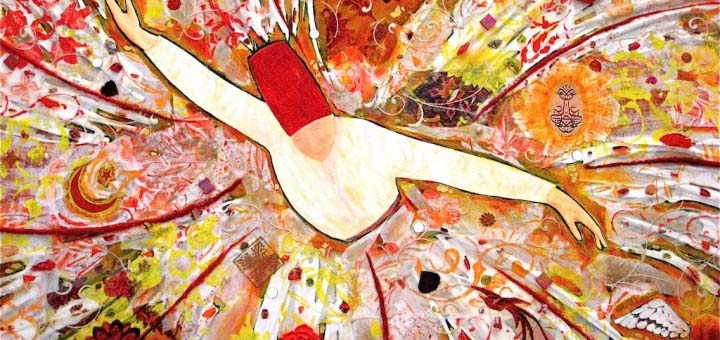
Dr Md Shairul Mashreque :
The prophet(SM) was the embodiment of spiritualism. This greatest spiritual leader was blessed with the help of Allah when his adversaries challenged him. Before he came down to the earth to guide the people with the gospel of peace and universal brotherhood the humanity was facing backlash at the critical point of the history of mankind.
On the eve of his advent there were some miracles as evidenced from the antecedents like Persian blaze, cracks in the palace of the Rome emperor and the collapse of twelve tower-all being the symbol of falsehood, injustice, persecution, structural and non-structural violence and other sinful acts. It indicated that Hazrat Muhammad (Pbuh) was coming to purge the society of all the menacing setbacks like immorality, injustice, inhuman torture, incest and misrule.
The Islamic way of life that he cherished and also established in his lifestyle helped a lot in creating an environment of peaceful co-existence with other religious groups. Muhammad(SM) attached importance to tolerance and respect for other dogmas. Subsequently the Sufi saints with immense love for mankind preached Islam in a peaceful manner coming in touch with the locals. They followed the footprints set by Rasool (SM). Islam in the subcontinent was always full of tolerance advocated by Sufism.
Religion and religiosity stand out to be the parparable fact of our community life. This is truly so in Asian subcontinent. The meaning of religion is deeply anchored in spiritualism. The esoteric value of religion communicates our mind with soul. Sufism contributed largely to the dissemination of the real meaning of Islam with the conception that Islam is for peace and non-violence. Sufi saints in the subcontinent lost in the labyrinth of meditation approached the people with lofty ideas. The Indian Sufi saints during the period of Delhi Sultanate introduced the new devotional practice of meditation like yogalandar a strange mix of Iranian and Indian spiritual practices. ‘They came to Bangladesh from Arabia and Iran in the mid-eleventh century’ to spread the message of Islam by establishing mosques, madrashas, khankas and shrines. The overarching values like equality, humanity, non-communalism, liberalism and humanitarian service appeal much to the society at its depth.
“Sufism is more concerned with the unity of being, the oneness of humanity and oneness within the “Light of the Divine”, rather than with political unity.’ It emphasizes ‘the contents rather than the cloth, communitarianism rather than individualism, humanity rather than identity, love rather than hatred.’
True Islam preached by Muhammad (SM) is largely misunderstood. Misconception grips the whole thematic view of the sacred continuum with differing interpretations and connotations. Schism within the belief system has become reinforced as different schools of thoughts have been springing up to mesh up things so far purity of the belief system is concerned. More the deluge of extremism and militancy as the fall out of the misdirected role of the extremists mattered a lot in tarnishing the image of Ummah. “Misunderstanding is also due to the activities of the back dated and incompetent local clerics issuing edits in the name of Islam from time to time.”
Turning through the pages of Islamic history and culture we find that ‘certain western scholars and intellectuals brand Islam as the religion of sword wielders and proponent of terrorism which is anything but truth. A chunk of literary works on Muslim history contributed largely to a good deal of misconceptulisation about the development of Islam in the oriental as well as Indian contexts. So something wrong with the epistemology Islamic history adds to misunderstanding of Islam per se so often with distortion and fabrication of facts. The history of the rise and fall of aristocratic dynasties, conquest and defeat in battles replete with the stories of bloodshed and annihilation does not reflect the history of Islam
I feel it incumbent upon me to reflect the true meaning of Islam proclaimed by Sufi saints at the moment when we are passing through the spell of degeneration. True our great Prophet (Pbuh) started his glorious mission in a peaceful manner with a small number of followers including his beloved wife Khadija (RA). He resorted to persuasion rather than force. He had to involve in ‘full-fledged wars that were thrust on him and his followers.’ The army of the truth under his leadership fought with ‘incredible fortitude and ultimately came out victorious’. So the western allegation of sword being used to expand Islam is rather ludicrous for the reason that the ‘Holy Prophet(SM) never used sword even sparingly unless the exigencies of the situation so demanded. His charming personality coupled with humanitarian predisposition ‘earned him hundreds and thousands of admirers from all over, including the established Christian world. To quote a writer:
Undoubtedly to the world at large the Prophet of Islam (Pbuh) had given a religion of peace, without perhaps knowing that 1400 later, some irresponsible people would endeavour to give it a bad name through acts of militancy, which would be difficult to defend easily.
At this critical juncture we should follow the roadmap set by Sufi saints for establishing peace, progress and harmony in the wake of devastating terrorism, vandalism with unprecedented ferocity in the name religion. The Sufi saints contributed to the age-long fabric of the Muslim societies with pre-existing institutions based on the values of Islam projected by the Prophet (SM). n
(Dr Md Shairul Mashreque is Professor of the Department of Public Administration in Chittagong University, Bangladesh)

